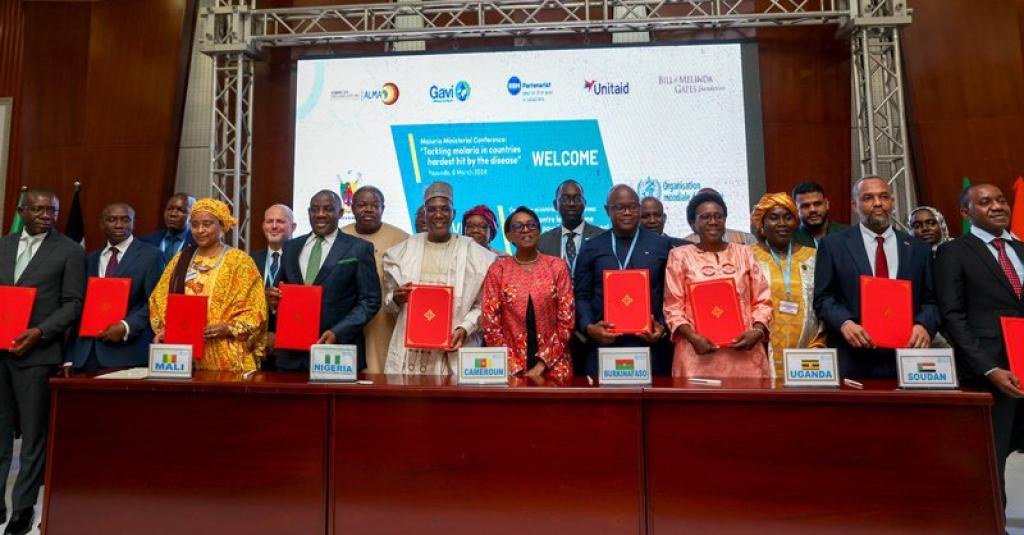Health ministers of 11 African countries commit to end malaria deaths

- 11 Mar 2024
Why is it in the News?
In a historic gathering in Cameroon’s capital Yaoundé, African health ministers, global malaria partners, funding agencies, scientists, civil society organizations and other principal malaria stakeholders pledged to end malaria deaths, especially given the tools and systems available.
What is the Yaounde Declaration?
- The Yaounde Declaration was endorsed by health ministers from 11 African nations with the highest malaria burden, aiming to expedite efforts to eliminate malaria-related deaths.
- Signed during the Yaoundé conference, co-hosted by the World Health Organization (WHO) and the Government of Cameroon, the declaration underscores a collective commitment to combat malaria.
- The signatory countries include Burkina Faso, Cameroon, the Democratic Republic of the Congo, Ghana, Mali, Mozambique, Niger, Nigeria, Sudan, Uganda, and Tanzania, together accounting for approximately 70% of the global malaria burden.
- Commitments entail stronger leadership and increased domestic funding for malaria control programs, leveraging data technology, adhering to updated technical guidance, and intensifying efforts at national and sub-national levels.
- Ministers pledged augmented health sector investments to fortify infrastructure, personnel, and program implementation, fostering multi-sectoral collaboration, and cultivating partnerships for funding, research, and innovation.
- Signatories affirmed their resolute dedication to hasten malaria mortality reduction and to ensure mutual accountability for the declaration's outlined commitments.
Current Status of Malaria:
- Between 2019 and 2022, global malaria cases increased from 233 million to 249 million, with Africa experiencing a substantial rise from 218 million to 233 million cases, highlighting the continent as the epicenter of the malaria crisis.
- The 11 African countries represented at the conference bear the highest burden of malaria infections and deaths.
Progress and Challenges:
- Despite some progress, malaria incidence has only declined by 7.6% and mortality by 11.3%, falling short of the African Union’s interim goals.
- Only seven out of 46 member states have achieved a 40% reduction in malaria incidence or mortality.
- Urgent action is imperative to bridge a financial gap of $1.5 billion to sustain basic malaria services, especially for vector control.
- Additional funding of $5.2 billion annually for progress towards elimination and $11 billion for climate adaptation in the health sector is crucial to avert significant surges in cases and deaths, particularly among vulnerable populations like children and pregnant women.
